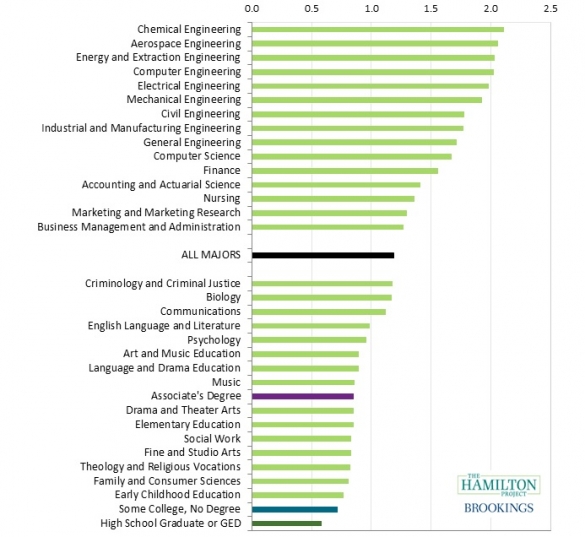In this article, we’ll discuss the value of a college degree for your money, as well as the Earning potential of your field of study. But before we get into the value of a degree, let’s look at the opportunity cost of a lack of knowledge about what your choice will bring. After all, the return on investment can only be as high as your motivation, right? Let’s start by asking: “How much money will I earn if I do X?”
Return on investment from a college education
While individual financial returns to a college education are the most important factor in determining whether a college is worthwhile, there are other considerations as well. The type of degree earned and cost of attendance are among the major factors. The research also examines how college degrees affect future earnings. There are many trade-offs between majors, and students should weigh those options carefully. The benefits of a college education are innumerable.
While the ROI varies greatly from school to school, it generally remains at least double the average for a college degree. A degree in art, for example, yields higher than that of an engineering degree. Another major that provides higher ROI is business, such as accounting or finance. Even more important, those with a college degree can expect to make more than the average investor. In addition, they’ll have more job opportunities if the economy suffers a collapse.
Field of study
In America, over 5,300 colleges and universities offer every type of training and education. The value of a college education is well-documented. A recent survey by the Association of American Colleges and Universities found that most employers value an education in a particular field, but they also value a broader education. But, just what is the value of a college education, and why does it matter?
The value of a college degree is dependent on the field of study, as well as age. The US Census Bureau has conducted several studies on the earnings potential of various degrees. In 2017, for example, men earned $51.4 million over their lifetime, while women earned just over half that amount. A college degree has a definite value in many cases, as it creates a ripple effect in society. But a college degree has far more than economic benefits.
Earning potential
Earning potential varies from job to job, but it is generally higher for people who have earned a degree. Some fields, such as education or nursing, are in high demand, and they will pay higher wages than those who don’t have a degree. The earning potential of a college degree generally increases over time, as does the likelihood of earning more. It is also important to note that earning potential is not just determined by the starting salary; it is also dependent on the profession and individual skills and professional development.
Many companies recognize that educating their employees helps them land better jobs. In fact, some companies even pay for employees’ tuition, since having a degree increases their earning potential. And, as a result, college graduates are less likely to be laid off in a recession. The worst affected are lower-level employees with high school diplomas. Moreover, a degree will also reduce the chance of long-term unemployment.
Opportunity cost
If you are planning to pursue higher education, you have to keep in mind that the cost of the opportunity cost is what you will lose by not pursuing your goals. If you choose to take a gap year or stay in school, you may end up delaying your graduation. On the other hand, staying in school will limit your time on campus. Instead, you should look for opportunities to gain valuable full-time experience such as internships, employment, learning hard skills, and experiencing unique situations. To minimize the costs, you can consider attending community college or a vocational school.
Opportunity cost is a term that refers to the costs involved in going to college, as well as the associated costs. It applies to a wide range of choices, including those that are financially beneficial and those that do not. It’s best to apply it to the costs of higher education when deciding which career path to pursue. Whether you decide to enroll in a college or a trade school will depend on what you value the most.

